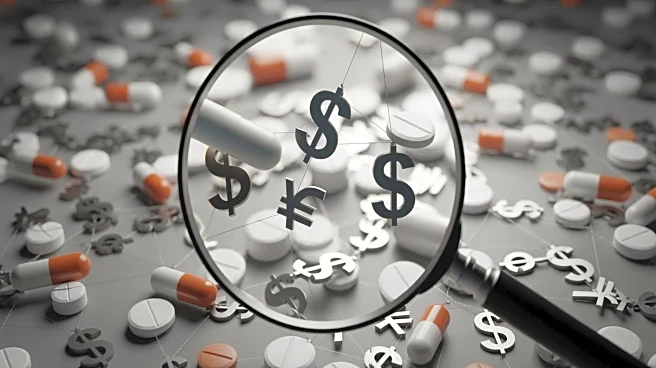What's Happening?
President Trump is launching a new investigation under Section 301 of the Trade Act of 1974 to assess whether U.S. trading partners are paying sufficient prices for drugs. This probe could lead to new tariffs against these partners if they are found to be underpaying.
The investigation follows recent trade agreements between the U.S., the U.K., and the EU, which had temporarily eased trade tensions. Concurrently, several pharmaceutical companies, including Pfizer, AstraZeneca, and Amgen, have reached agreements with the White House to list some of their drugs on a new platform called Trump Rx, aiming to mitigate risks related to drug pricing and tariffs.
Why It's Important?
The investigation reflects President Trump's ongoing efforts to address drug pricing disparities and ensure that other nations contribute fairly to the costs of pharmaceutical innovation. If tariffs are imposed, it could lead to increased drug prices internationally and affect global pharmaceutical trade. The agreements with major pharmaceutical companies indicate a strategic move to protect these companies from potential tariffs while addressing domestic drug pricing concerns. The outcome of this probe could have significant implications for international trade relations and the pharmaceutical industry.
What's Next?
The investigation's findings will determine whether new tariffs will be imposed on U.S. trading partners. The pharmaceutical industry is closely monitoring the situation, as tariffs could impact their international operations and pricing strategies. The Trump administration's actions may prompt responses from affected countries, potentially leading to further negotiations or trade disputes. The agreements with pharmaceutical companies suggest ongoing collaboration with the White House to navigate these challenges.














